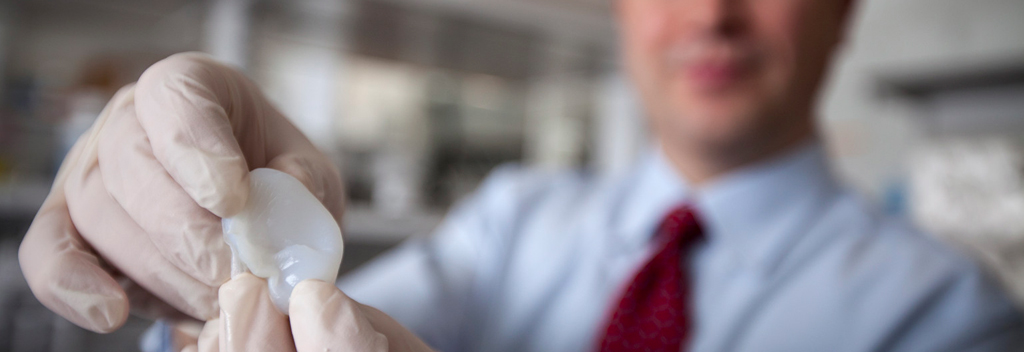Imagine a future where, instead of sitting on a transplant list for years, you could just have a new heart or liver in several hours? Or losing a limb in an accident, then simply having a new one printed and attached at the hospital? What if you wanted to keep a young, firm complexion? Bioprinting may make aging a thing of the past. I believe that in the future, possibly even the next decade, you will be able to have a “fresh coat of face” printed right onto your old one.
The implications of 3D bioprinting are mind blowing. It may soon be possible to live very long lives, with failing organs being replaced with new organs printed from your own cells. Currently bioprinting is largely experimental, but in the future your local hospital will be printing and growing body organs and parts.
 The droplets produced in a standard ink-jet printer are just about the same size as human cells. Professor Makoto Nakamura is the Japanese scientist who was the first to realize that the technology would work for human cells. By 2008, he had developed a bioprinter capable of printing out biotubing, or blood vessels. He continues to work on bioprinting and his hopes match those of fellow scientists: to have the ability to print human organs, which would be ready immediately for transplant.
The droplets produced in a standard ink-jet printer are just about the same size as human cells. Professor Makoto Nakamura is the Japanese scientist who was the first to realize that the technology would work for human cells. By 2008, he had developed a bioprinter capable of printing out biotubing, or blood vessels. He continues to work on bioprinting and his hopes match those of fellow scientists: to have the ability to print human organs, which would be ready immediately for transplant.
Organovo is a company that is also pioneering the bioprinting industry. The company was created at the University of Missouri by Professor Gabor Forgacs. The same year Nakamura was printing blood vessels, the people in the Organovo group also successfully printed blood vessels and cardiac tissue using cells from chickens.
Since then, Organovo has teamed up with Invetech, to create the NovoGen MMX, a commercial bioprinter which combines a dissolvable biopaper, made from gelatin or other hydrogels, with layers of cells to create a mold. The printer lays out layer after layer of little blobs, and then lets nature take charge. The blobs, or bioink spheroids, almost magically blend together to create the organ.
Bioprinting has vast potential to revolutionize healthcare and how we live our lives. There are ethical questions, as there always are when man is able to essentially play God. Just because we can create these things, does it mean we should? What are the ethical implications of having the ability to extend our lives, and will people stop trying to take care of their bodies if they know they can just print a new body parts?
Want to eat that block of cheese? It’s cool… you can just print out a new heart.
Want to drink you life away? No problem… you can just print out a new liver.
I am sure this technology will be abused, but as someone who is seeing the years pass by all too fast I am happy to see how quickly it is progressing. If you could get any organ or body part replaced today what would you do?





It’s one thing to be able to build a new organ, it’s another to actually get it *inserted*. I’d much-rather have small robots that would fix some of the problems more proactively than have to have my chest cracked-open in order to receive a new heart.